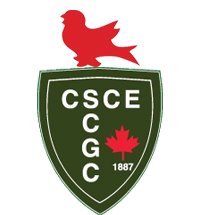Canadian Society for Civil Engineering
 | |||||||
| |||||||
The Canadian Society for Civil Engineering (CSCE) is a national professional society whose membership is consisted of practicing civil engineers, corporations, professors, and students like you. The society promotes professional development, exchange of knowledge, public awareness, and networking in the field of Civil Engineering. CSCE McGill Chapter connects students to the professional engineering world through construction site tours, guest speakers, industry tours and seminars. Membership is free!
Mandate
The goal of CSCE is to link the theoretical knowledge gained in the classroom to the outside world. See how a foundation is laid, how a power generation plant works, how a site is renovated and much much more!
Social Events
Networking sessions with professionals, debates between professionals, construction site tours, industry tours, and socials.
Past Events
Past events: Tour of L'Avenue construction site, tour of Silo 5, tour of galvanizing plant, tour of steel manufacturing plant, tour of Canadian Centre for Architecture, tour of Beauharnois power generation station, tour of Champlain bridge, tour of Montreal Soccer Centre construction site
Section2
The story repeats the theme of Borges' 1939 essay "The Total Library" ("La biblioteca total"), which in turn acknowledges the earlier development of this theme by Kurd Lasswitz in his 1901 story "The Universal Library" ("Die Universalbibliothek"): There should be at least 5 members serving at the bar at a time; however less are needed in the first hour of Blues Pub on average.
- Pullquote
- Certain examples that Aristotle attributes to Democritus and Leucippus clearly prefigure it, but its belated inventor is Gustav Theodor Fechner, and its first exponent, Kurd Lasswitz. [...] In his book The Race with the Tortoise (Berlin, 1919), Dr Theodor Wolff suggests that it is a derivation from, or a parody of, Ramón Llull's thinking machine [...T]he elements of his game are the universal orthographic symbols, not the words of a language [...] Lasswitz arrives at twenty-five symbols (twenty-two letters, the space, the period, the comma), whose recombinations and repetitions encompass everything possible to express in all languages. The totality of such variations would form a Total Library of astronomical size. Lasswitz urges mankind to construct that inhuman library, which chance would organize and which would eliminate intelligence. (Wolff's The Race with the Tortoise expounds the execution and the dimensions of that impossible enterprise.)
More tools
Here's a popout pdf